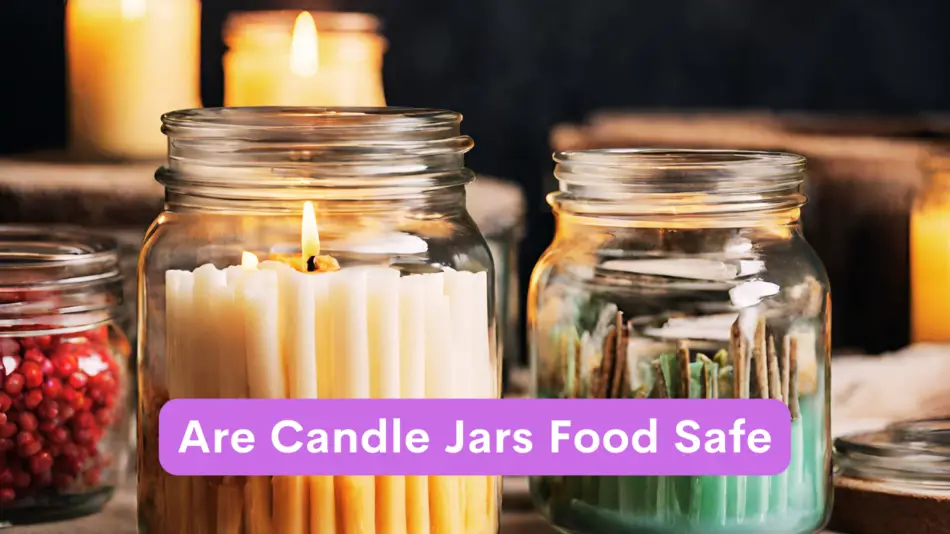
In the eco-conscious corners of home decor and kitchen organization, repurposing candle jars has emerged as a popular trend. These jars, often left over from decorative or scented candles, present a unique opportunity for sustainable living enthusiasts. However, a crucial question arises: “Are candle jars food safe?” This article delves into the safety considerations, guidelines, and best practices for repurposing candle jars for food storage, providing you with all the information you need to make informed decisions.
Are candle jars Food Safe? It depends. Not all candle jars are created equal, and their suitability for food storage varies based on the materials used, the presence of any residual substances, and the intended use. While some candle jars may be safe for storing dry goods, others might not be suitable for any food storage due to potential chemical contamination or physical hazards.
Candle jars, once thoroughly cleaned, can be repurposed for a variety of uses, but whether they are food-safe depends on the material of the jar and the type of candle that is in it. Glass jars used for candles can often be safely used for storing non-perishable food items if they have been properly cleaned to remove any wax and residue. However, it’s important to note that not all jars are created equal, and jars that have been painted or treated with certain chemicals might not be safe for food storage.
Understanding Candle Jars
Materials Used in Candle Jars
- Glass: is the most common material, varying in thickness and quality.
- Ceramic: less common, often decorative.
- Metal: usually found in decorative or specialty candles.
Potential Contaminants
- Wax Residue: This can be difficult to completely remove.
- Smay: May deposit on the jar’s inner surfaces.
- Chemical Treatments: Colors, glazes, or other treatments may not be food-safe.
Safety Considerations
Chemical Safety
- The risk of chemical leaching from treated or painted jars.
- The impact of residual candle wax and its removal.
Physical Safety
- Thermal resistance for use at different temperatures.
- Risk of breakage and its implications.
Guidelines for Repurposing Candle Jars for Food Storage
- Thorough Cleaning: Steps for removing all wax and soot.
- Inspection: Checking for cracks, chips, and other damages.
- Selection: Choosing jars made of food-safe materials without hazardous decorations or coatings.
Best Practices
- Use for dry goods only, such as pasta, rice, or coffee beans.
- Avoid using highly acidic foods or liquids.
- Consider the jar’s original purpose and material safety data.

Table: Assessing Candle Jar Materials for Food Safety
| Material | Chemical Safety | Physical Safety | Recommended Use |
|---|---|---|---|
| Glass | High (if untreated) | High | Dry goods storage |
| Ceramic | Moderate (depends on glaze) | High | Decorative use preferred |
| Metal | Low (risk of rust) | Moderate | Non-food storage |
FAQs
Can I use a candle jar to store homemade jams or sauces?
Generally, it’s not recommended due to potential chemical leaching and the difficulty of ensuring complete cleanliness.
How can I be sure a candle jar is clean enough for food storage?
Beyond thorough cleaning, consider the jar’s material and any treatments it might have undergone. When in doubt, opt for non-food uses.
Are there any food-safe coatings I can apply to candle jars?
While food-safe sealants exist, applying them correctly requires knowledge and precision. It’s safer to use containers designed for food storage.
Conclusion
In conclusion, “Are candle jars food safe?” is a question with many facets. While the possibility of repurposing exists, it’s accompanied by significant considerations regarding materials, contaminants, and safety practices. By following the guidelines and best practices outlined in this article, you can navigate the repurposing process with care, ensuring that your creative storage solutions don’t compromise your health.